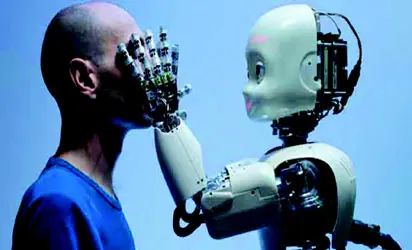A top United Nations official stated that humanity is in a “race against time” to harness the vast potential of artificial intelligence (AI) for the common good while mitigating its significant risks.
Speaking at the AI for Good Global Summit in Geneva, Doreen Bogdan-Martin, head of the UN’s International Telecommunications Union (ITU), stated the urgency of the situation, declaring, “We’ve let the genie out of the bottle.”
Bogdan-Martin stressed the transformative power of AI, noting its remarkable advancements and the role it can play in addressing critical global issues such as climate change, hunger, and social care. “Recent developments in AI have been nothing short of extraordinary,” she remarked, calling it a “once-in-a-generation opportunity” to benefit all of humanity.
However, she also pointed out the stark digital divide, with one-third of the global population still offline and excluded from the AI revolution. “This digital and technological divide is no longer acceptable,” she said, underscoring the need for inclusive access to technology.
The conference gathered thousands of experts and leaders who echoed her sentiments. Tristan Harris, a technology ethicist and co-founder of the Center for Humane Technology, warned of the potential dangers, drawing parallels with the unintended negative consequences of social media. “The number one thing that is driving OpenAI or Google behaviour is the race to actually achieve market dominance,” Harris cautioned, highlighting the risks of disinformation and cyber threats.
Sam Altman, CEO of OpenAI, acknowledged the significant challenges, particularly in cybersecurity, and suggested that AI’s impact on society might necessitate a rethinking of the social contract. “I’m not a believer that there won’t be any jobs… but I do think the whole structure of society itself will be open to some degree of debate and reconfiguration,” Altman said.
Despite the risks, Altman maintained that AI systems are generally considered safe and robust, though he admitted that predicting future impacts is difficult. He welcomed regulatory discussions, noting the European Union’s recent establishment of an AI Office to oversee the technology.
Bogdan-Martin concluded with “It’s our responsibility to write the next chapter in the great story of humanity and technology, and to make it safe, inclusive, and sustainable.”



